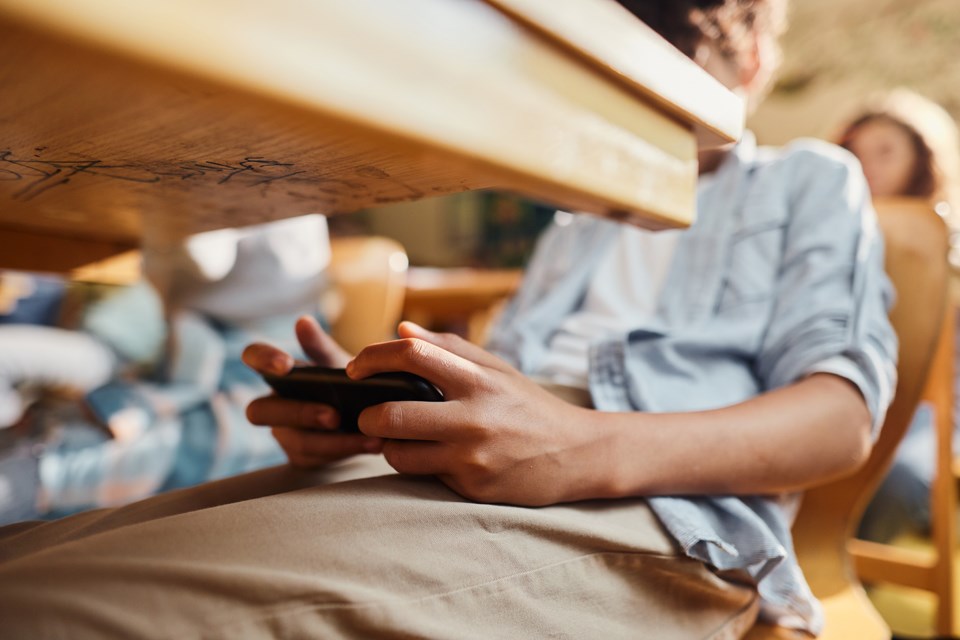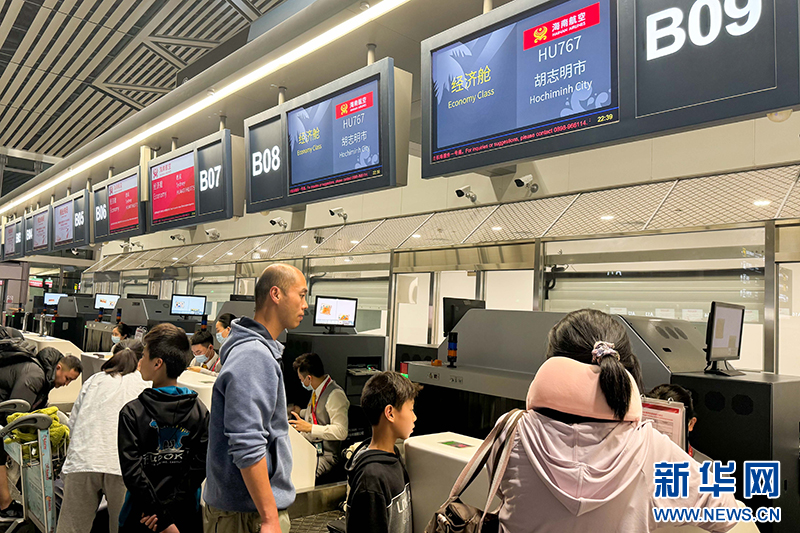Cell Phone Restrictions In Iowa Schools: The Impact Of The New Law

Table of Contents
The Details of the New Iowa Cell Phone Law
The new Iowa cell phone law, [insert law number or name here if available], aims to minimize classroom distractions and promote a more focused learning environment. While the specifics may vary slightly depending on individual school district policies, the core provisions generally include:
-
Specific timeframes for cell phone use: Cell phones are typically prohibited during instructional time, including classes and exams. However, many districts allow cell phone use during designated breaks, such as lunch periods or before/after school. This policy on cell phone use aims to balance educational needs with practical considerations.
-
Consequences for students violating the policy: Penalties for violating the cell phone policy can range from verbal warnings and detention to suspension, depending on the severity and frequency of the offense. Confiscation of the phone is also a common consequence.
-
Exceptions for students with documented medical or educational needs: Students with documented medical conditions requiring cell phone access (e.g., for emergency contact) or those using cell phones for IEP-related educational apps may be granted exceptions with appropriate documentation.
-
Role of school administration in enforcement: School administrators and teachers are responsible for enforcing the cell phone policy. This involves clear communication of the rules, consistent monitoring, and fair application of consequences.
-
Clarification on the definition of "cell phone": The definition of a "cell phone" often includes smartphones, smartwatches, tablets, and other electronic devices capable of communication or internet access. This broad definition aims to address technological advancements.
Impact on Student Learning and Behavior
The impact of the new Iowa cell phone law on student learning and behavior is a subject of ongoing debate. Proponents argue that restricting cell phone use leads to:
-
Improved classroom focus and reduced distractions: By eliminating the temptation of social media and other apps, students can better concentrate on lessons and classroom activities.
-
Potential for decreased cyberbullying incidents: Limiting access to cell phones during school hours could potentially reduce instances of cyberbullying and online harassment.
However, critics raise concerns about:
-
Concerns about limiting student access to educational apps or emergency communication: Restricting cell phone use could limit access to valuable educational apps and potentially hinder students' ability to contact family in case of emergencies.
-
Impact on social interactions among students: Some argue that restricting cell phone use could negatively affect social interactions and the development of social skills among students.
Data on similar policies in other states presents mixed results, highlighting the complexity of evaluating the impact of cell phone restrictions on academic performance. Further research is needed to determine the long-term effects of this specific law in Iowa.
The Role of Teachers and School Staff
The new cell phone law places additional responsibilities on teachers and school staff. Enforcing the policy effectively requires:
-
Increased workload for teachers in managing cell phone usage: Teachers may need to dedicate additional time and effort to monitoring cell phone use and addressing violations.
-
Need for teacher training and resources on effective enforcement strategies: Professional development opportunities focusing on strategies for managing cell phone use and addressing student behavior related to this policy are crucial.
-
Potential for conflict between students and staff over cell phone use: Clear communication, consistent enforcement, and a focus on positive behavior interventions are essential to minimize conflicts.
-
Strategies for positive behavior interventions and supports related to cell phone use: Schools need to implement strategies that support positive behavior and encourage compliance with the new policy.
-
The administrative burden on schools related to policy implementation and record-keeping: Schools face an administrative burden in implementing and maintaining records related to the cell phone policy.
Parental Perspectives and Community Response
Parental and community responses to the new cell phone restrictions are diverse. While some parents strongly support the law, believing it promotes a more focused learning environment, others express concerns about:
-
Concerns about parental ability to communicate with children during school hours: Parents may worry about their inability to easily contact their children during emergencies or for scheduling purposes.
-
Balancing student safety and academic needs with parental rights: The debate often revolves around balancing the needs of the school with the rights and concerns of parents.
Community discussions reflect a wide range of opinions, with advocacy groups taking different stances on the issue. Gathering comprehensive data through surveys and focus groups would provide a clearer understanding of parental and community perspectives on this new legislation.
Conclusion
The new Iowa cell phone law represents a significant change in the approach to cell phone use in schools. While it aims to improve student focus and reduce distractions, it also raises concerns about access to educational tools and emergency communication. The effectiveness of the law will depend on clear communication, consistent enforcement, and ongoing evaluation of its impact on students, teachers, and the overall learning environment. Understanding the challenges and benefits requires a collaborative effort from schools, parents, and the community. We encourage you to learn more about the specific implementation of cell phone restrictions in your local Iowa school district and to participate in informed discussions about the ongoing impact of these new Iowa cell phone laws on student learning and well-being. Let's work together to shape future policies related to student cell phone use in Iowa schools.

Featured Posts
-
 Spesifikasi Dan Harga Kawasaki W175 Cafe Retro Klasik Yang Stylish
May 30, 2025
Spesifikasi Dan Harga Kawasaki W175 Cafe Retro Klasik Yang Stylish
May 30, 2025 -
 Dwytshh Bnk Tezyz Alshrakat Wzyadt Alastthmarat Fy Alimarat
May 30, 2025
Dwytshh Bnk Tezyz Alshrakat Wzyadt Alastthmarat Fy Alimarat
May 30, 2025 -
 6 15
May 30, 2025
6 15
May 30, 2025 -
 Bts Reunion Teaser Comeback Speculation Ignites Army
May 30, 2025
Bts Reunion Teaser Comeback Speculation Ignites Army
May 30, 2025 -
 San Diegos Inclement Weather Program In Effect Tonight
May 30, 2025
San Diegos Inclement Weather Program In Effect Tonight
May 30, 2025
